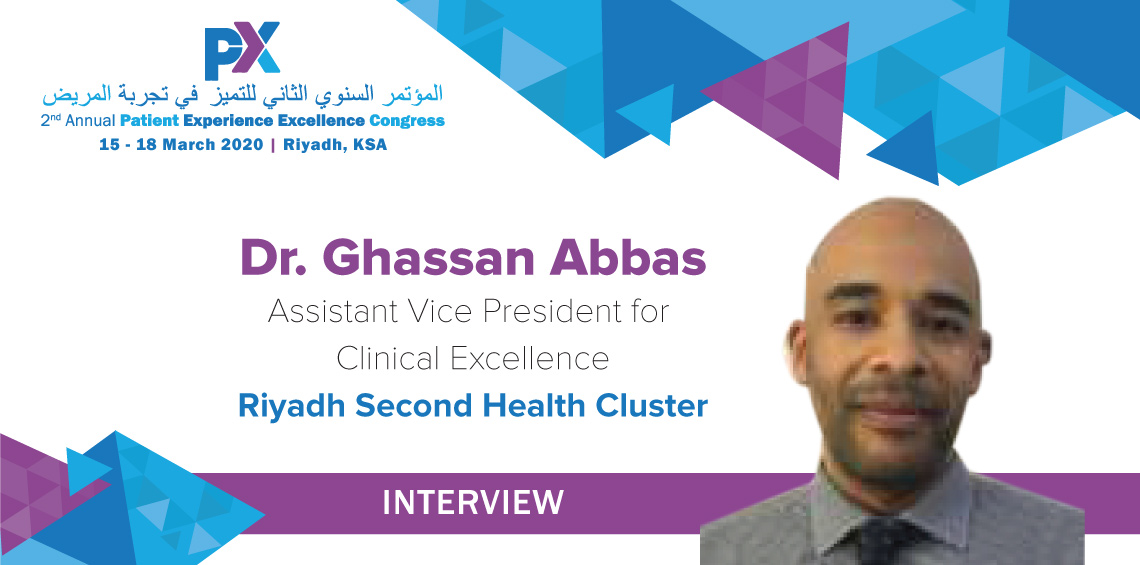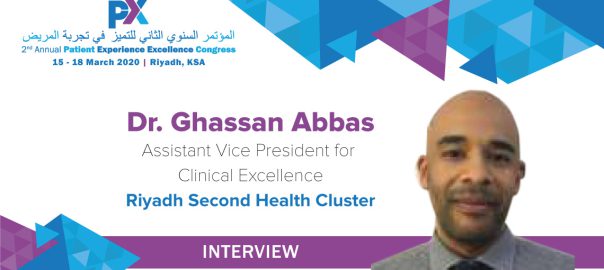Dr Abass is currently an assistant Vice President for the Second Central Health Cluster. He oversees several functions including: quality improvement, clinician affairs, patient experience, patient safety and accreditation. He is the holder of a Doctorate in International Health (Curtin University, Australia) as well as a PhD in Health Marketing Research (Deakin University, Australia). Ghassan was a key participant in the creation of the first patient experience dedicated executive administration in the MENA region. He has led the implementation of pioneering voice of customer programs, patient satisfaction surveys and values-based cultural transformation programs across the country.
Interview
How do you address the challenge of alignment – organisational culture, healthcare outcomes, service delivery and patient experience and how do you prioritise?
I would address these challenges simultaneously as I do not believe that they are in conflict. For example, I do not think patient experience could be accomplished in the absence of a healthy organizational culture. At the same time, optimal healthcare outcomes are not possible without patient experience. If we do not treat our patients respectfully and communicate with them effectively, we are compromising their care outcomes.
Caregiver burn-out is a growing epidemic in the healthcare industry – how do you ensure caregiver wellbeing and build resilient teams that are committed to deliver exceptional care at all points?
I have to say that a key consideration in ensuring caregiver well being, is that it should be recognized as key aspect of the organization’s strategy. Caregiver well being does not happen by accident, nor is it achieved through short term isolated efforts. It is should be part of every strategic plan, with clear ownership, and dedicated resources
Your insights on how to sustain the improvement between surveys?
One thing that I believe we did well at King Fahad Medical City is that sustainability was a key component of project planning. In other words we always planned not only to improve performance, but to sustain improvement. I personally that achieving the required culture change is best way to sustain improvement.
What is the most interesting thing you have observed while analyzing patient feedback to measure and improve patient experience.
The thing that I found most interesting is that most of the things that pleased/satisfied patients were simple. For example, analyzing patient feedback has shown me that patients want their caregivers to introduce themselves, spend time with them, treat them respectfully, etc. Patients rarely demand highly specialized services, new equipment or better buildings.
As a speaker at PXEC, what are you most looking forward to?
These events are a great opportunity to find out the new trends in the field, and to meet other leaders regionally and internationally. I look forward to learning from the best in the field, and to bringing a thing or two back with me to make patient care better in my organization.




